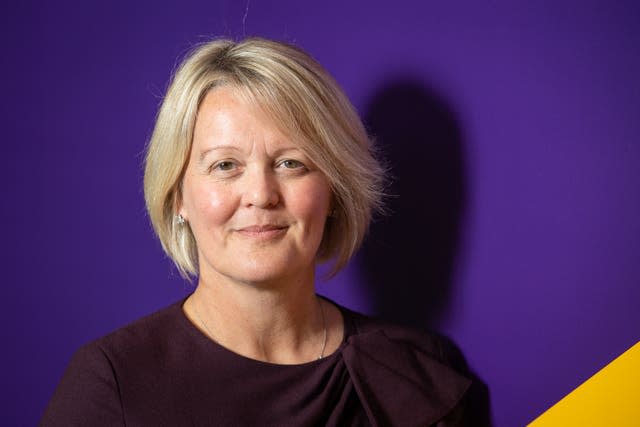NatWest returns to profit after heavy Covid hits
NatWest swung to a huge profit in the past year as the Government-backed bank released more money it held to one side during the Covid-19 pandemic.
The bank reported an operating pre-tax profit of £4 billion in 2021, up from an operating pre-tax loss of £481 million a year earlier.
As a result, bosses increased the bonus pot for staff from £200 million to £298 million and handed millions back to the taxpayer, which owns a near-51% stake in the bank, through dividends.
📢 Our Annual Results have now been released, take a look:#NatWestGroupResults https://t.co/UmCq9A452w
— NatWest Group (@NatWestGroup) February 18, 2022
Chief executive Alison Rose said it had been a strong year for the bank after Covid saw financial institutions put billions aside to weather any economic storms.
But she said she recognised the following year could be difficult for customers with the cost-of-living crisis.
The chief added: “At the moment, we’re not seeing any impacts of the cost of living but we are acutely aware of the challenges that people are facing.
“People are phoning us and talking about it but we’re not seeing any concerns coming through our data as yet.
“We’re really focused on making sure we’re putting in practical help for customers because I think if you look at rising inflation and the cost of living, it is a challenge that business owners and families have not really faced in the last 10 years.
“There are no signs of stress at the moment but we have specialist teams in place to train to deal with this.”
Bonuses are set to face scrutiny this year following high inflation and comments from Bank of England Governor Andrew Bailey, who urged workers to show restraint in asking for significant pay rises.
But Ms Rose said NatWest’s bonus pot remains below pre-pandemic levels of £307 million and is proportionate.
She added: “We typically show significant restraint if you compare us across the industry, but it does reflect a strong performance. If you look at our (bonus) pool, it is down on the pre-Covid 2019 pool.
“I think it’s about balance. A large proportion of our staff don’t get awarded bonuses.
“We operate in a competitive market and we have to pay fairly and competitively for the skills we have.”

NatWest chairman Sir Howard Davies added that due to the bank being majority-owned by the Government, a different approach is taken.
He explained: “From the board’s perspective, we take the view – rather unusually – that given our particular circumstances, we should aim to be at the bottom of the league for the very senior people.
“That is not something Alison and Katie (Murray, NatWest finance chief) necessarily completely welcome, but we are not aiming to be top quartile.
“We’re aiming to be competitive in the range, but we’re not aiming for the top of the range.”
In addition to the bonuses paid out, shareholders are set to receive £3.8 billion through a dividend of 7.5p a share, and a £750 million share buyback scheme, which removes stock from circulation in an attempt to boost its price.
This includes £1.7 billion to the taxpayer, with the Government owning a stake of just under 51%.
The huge profits come as NatWest said it had put £1.3 billion back on to its balance sheet from the £3.2 billion put aside during the pandemic, including £341 million in the final three months of the year.
Despite the large profits, Ms Rose said she would not rule out more branch closures, revealing a “significant” shift to online banking for customers.
She said: “Branches remain a core part of our service and the offering they have.
“We will be dictated by our customer behaviour and we’re seeing very significant changes in behaviour as more people going online, using video banking and digital services, but we’re also mindful of those customers who don’t want to do that as well.”

 Yahoo Finance
Yahoo Finance 